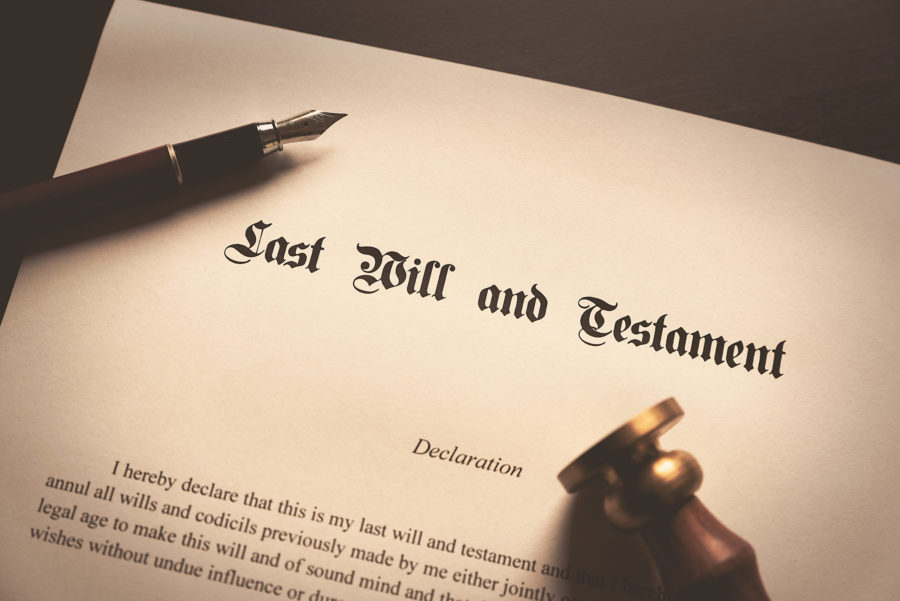
What Happens if I Die Without an Estate Plan?

Inevitably, death comes, but its timing is unpredictable. Don’t let your assets and the future of your loved ones slip through your fingers. If you don’t make an estate plan, the assets you’ve accumulated during your lifetime will be distributed according to the intestate succession laws in your state. You won’t have any say in who gets what.
What Happens When You Die Without an Estate Plan in North Carolina?
When you’re a North Carolina resident, and you die without a will or any other estate plan, your estate will be handled by the probate court. During the probate process, the court oversees the distribution of your property. The court will appoint an administrator for your estate. Your assets will be distributed according to state intestate succession laws.
These laws determine the order of priority and percentages for distributing assets to surviving family members. Before distributing any assets to the appropriate beneficiaries, the administrator will pay any outstanding debts or taxes with the approval of the court.
Distribution of Assets in North Carolina
According to North Carolina intestacy laws, the state distributes assets according to the deceased’s familial relationships when a person passes away. The following are examples of how the state handles the distribution of your assets.
Spouse
When a decedent dies without surviving children or parents, their spouse receives all their assets. However, if the decedent had surviving children or parents, the spouse would inherit the first $60,000 of the estate and a share of the remaining assets (half if one child or their descendants survives the decedent, one-third if two or more children or their descendants survive the decedent).
Children
If there is no surviving spouse, but there are children of the decedent, the assets are divided equally among them. The state will divide the share of any children who have predeceased among the decedent’s grandchildren.
Parents
If there was no surviving spouse or children, the deceased’s assets would be distributed equally among their parents. If only one parent survives, they will inherit the entire estate. If a spouse survives, the spouse inherits half the intestate real estate and, if the intestate personal property is worth less than $100,000, all the personal property. If the intestate personal property is worth more than $100,000, the spouse inherits $100,000 of it plus half the balance. The parents get the rest of the intestate personal property and half of the intestate real estate.
Siblings
Without a surviving spouse, children, or parents, the decedent’s assets would be divided equally among their siblings. If any sibling predeceases the decedent, their share will go to their own children.
Grandparents
In North Carolina, grandparents cannot inherit from their grandchildren.
Other Relatives
In the absence of a surviving spouse, children, parents, or siblings, assets are distributed to more distant relatives, such as cousins or nieces and nephews.
Potential Issues in North Carolina
There are several potential legal issues residents of North Carolina may face, from property disputes to taxes to guardianships of minor children.
The following are some of those potential issues:
Property disputes
These arise when there is disagreement over ownership, boundaries, or use of the real estate.
Guardianship of minor children
Choosing a guardian for a minor child can be challenging in circumstances where there is disagreement or concern about the suitability of the proposed guardian.
Taxes
Businesses and individuals in North Carolina are subject to various taxes, including income tax, sales tax, and property tax.
Time and Cost
The legal process can be time-consuming and costly. The advice of experienced attorneys is crucial for ensuring compliance with North Carolina laws and minimizing legal liability.
North Carolina Estate Planning Attorneys
Even though estate planning may not be a pleasant topic to discuss, it is important. Mullen Holland & Cooper P.A. is a trusted North Carolina estate planning law firm. With a successful track record of providing skilled and personalized service to our clients, we are committed to guiding you throughout the entire process. Start planning your future today by scheduling a consultation with one of our attorneys. Call us at 704-864-6751.






